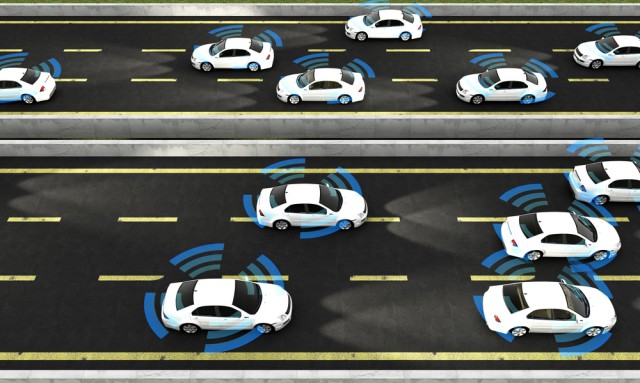New auto technology, new consumer considerations

Our taste for new tech has compressed the adoption cycle and introduced fresh technology into a variety of industries, including automotive. By 2020, 10 million self-driving cars will be on the road. Think about it -- that’s just three years away.
So soon, in fact, that it’s snuck up on many of us. So, what else can we expect? Here are three to keep an eye on.
More integrated tech
From in-car emergency service connections to fully-autonomous vehicles, there’s no mistaking the fact that we’re seeing technology's increasing influence in the design, performance, and functionality of today’s vehicles. These heavily-integrated systems work together to enhance the overall driving experience. Normally, they work seamlessly, but if one system fails, another is likely affected. These kinds of issues can be overwhelming, but an awareness of potential integrated technology systems can keep fear to a minimum when the dashboard warning lights start flashing.
Difficulty and repair costs
Because of the complicated, interdependent nature of this new technology, auto technicians are now expected to be electricians and IT troubleshooters as well as mechanics. Those routine repairs that could previously be handled at home by a "do-it-yourselfer" are now turning into fixes that can only be performed in the shop with additional diagnostic assistance. This level of complexity can increase parts pricing, service time, and total, out-of-pocket repair cost. Some of these potential new expenses can be mitigated with the help of a service contract provider. Be advised, though: not all service contract providers cover issues associated with new, advanced technology. Read the fine print to ensure your bases are covered.
Personal data sharing
More integrated technology also means a bigger push to link more data to your vehicle. Personal information—such as your home address, age, and driving patterns—can all be used to enhance the in-vehicle experience, as well as the overall driving experience. Automakers are using this data to improve vehicle features, help cars last longer, create custom apps and so much more. And with the Internet of Things causing the convergence of nearly everything a consumer touches, the auto industry isn’t going to be left behind.
It’s sometimes said "you are what you drive." With all the technology, functionality, integration, and personalization available in vehicles today, this adage is not only truer than ever, but also takes on a whole new meaning. New technology is changing the way we drive, and impacting the way we experience vehicle ownership more than ever. By keeping these three changes in mind, consumers can prepare for the shifts they’re seeing in the auto industry, and ready to embrace change as quickly as it comes.
 Scott McLaren is EVP and CMO at Fortegra Financial Corporation (a Tiptree Inc. company). Fortegra®and its subsidiaries comprise a single-source insurance services provider that offers a range of consumer protection options including warranty solutions, credit insurance, and specialty underwriting programs. Delivering multifaceted coverage with an unmatched service experience for domestic and international partners and their customers, Fortegra solves immediate, everyday needs, empowering consumers to worry less and experience more.
Scott McLaren is EVP and CMO at Fortegra Financial Corporation (a Tiptree Inc. company). Fortegra®and its subsidiaries comprise a single-source insurance services provider that offers a range of consumer protection options including warranty solutions, credit insurance, and specialty underwriting programs. Delivering multifaceted coverage with an unmatched service experience for domestic and international partners and their customers, Fortegra solves immediate, everyday needs, empowering consumers to worry less and experience more.